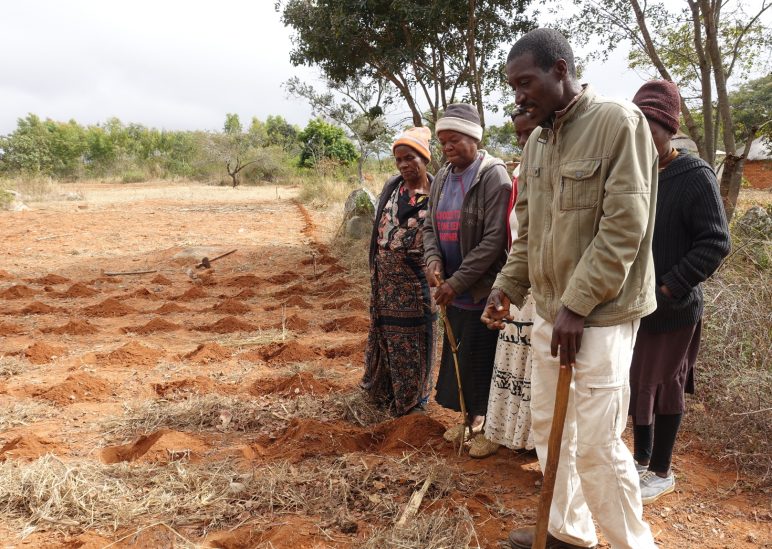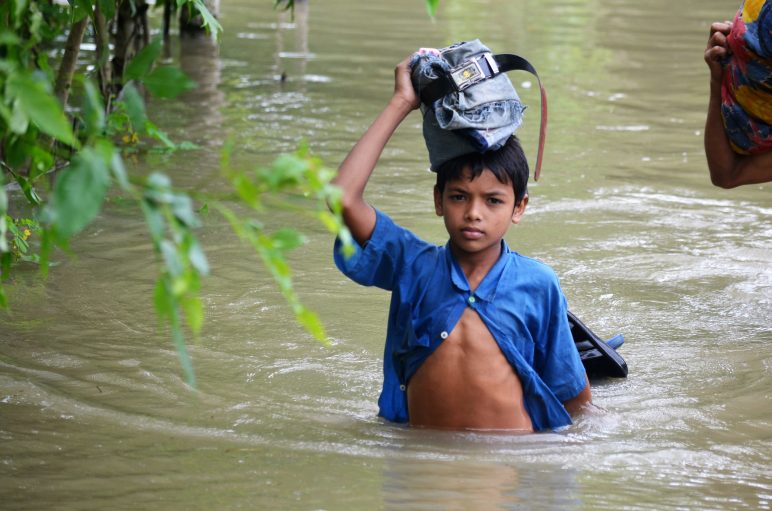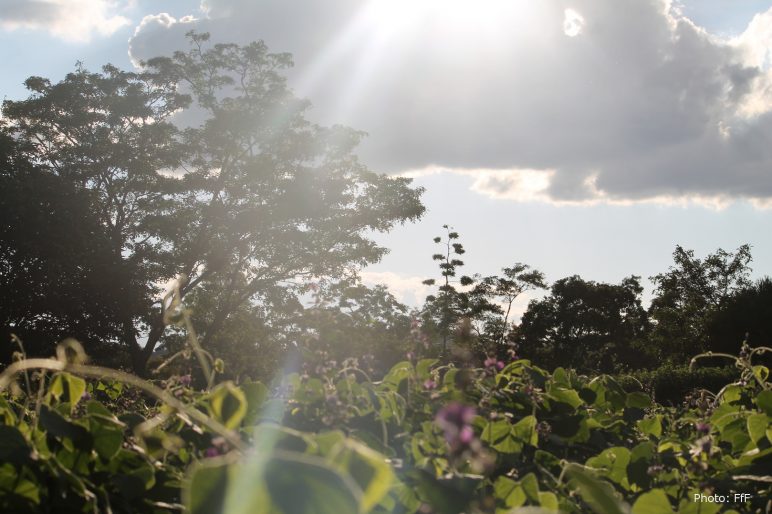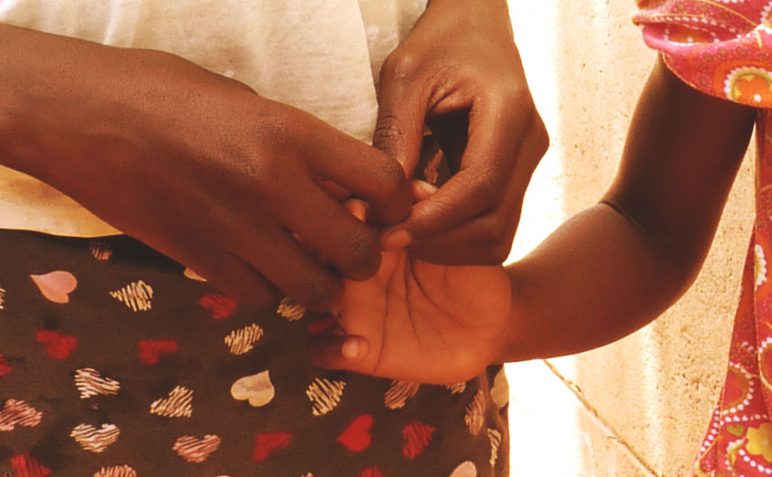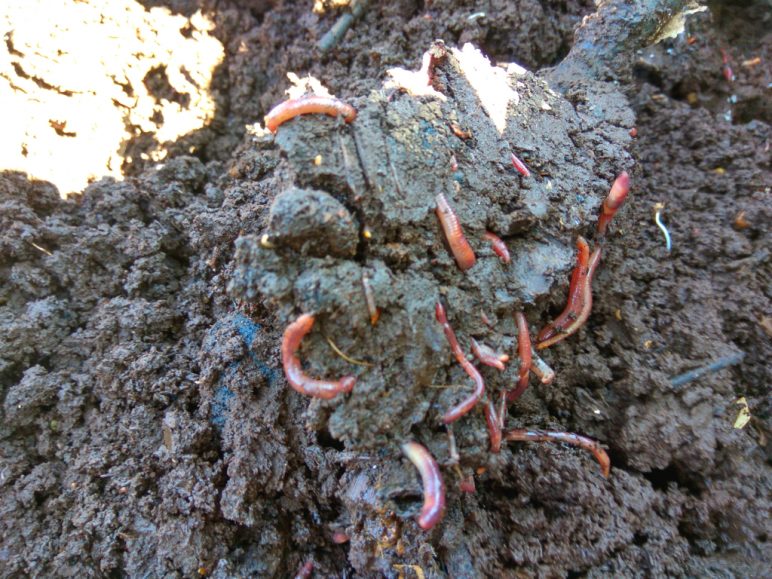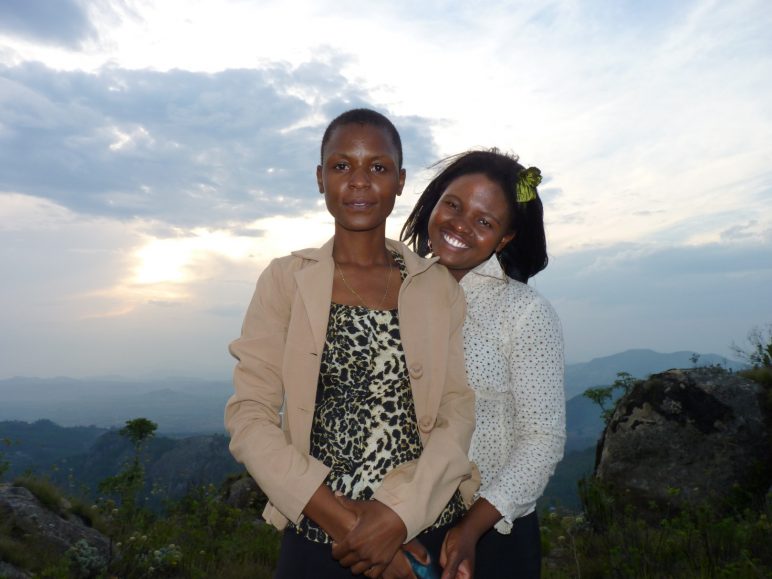A PADR facilitator (first right) is explaining a ploughing method
Stanley Enock Hanya is the Coordinator of Church and Community Mobilisation projects at Evangelical Fellowship of Zimbabwe (EFZ), which is one of the biggest evangelical alliances in Zimbabwe. He hopes to equip faith leaders in churches to teach their congregation to facilitate community development based on biblical principles.
Written by: Stanley Enock Hanya (Church and Community Mobilisation Coordinator, EFZ)
The EFZ embarked on Disaster Risk Reduction (DRR) after calls for relief from previous project communities that had been affected by 2015/2016 El Niño induced drought. Realising that disaster response was not sustainable, the organisation began to intently look at the word of God for inspiration on issues of disaster prevention. It was after some soul-searching effort that we were able to adopt the Participatory Assessment of Disaster Risk (PADR) as a tool to guide the implementation of DRR initiatives in communities.
Continue reading The Church playing a part in DRR work is most effective and sustainable





